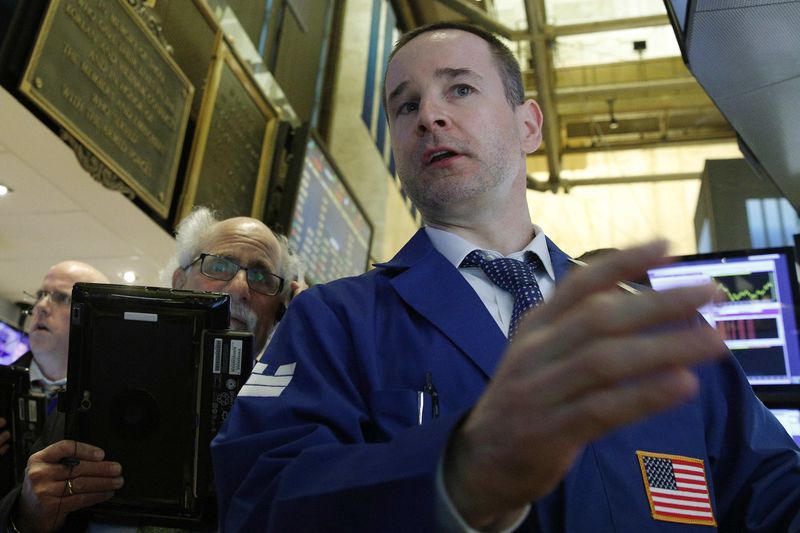By Dion Rabouin
NEW YORK (Reuters) - U.S. stocks rose on Monday as a weakening dollar and steadying commodity prices shifted investor sentiment from weak earnings and poor economic data in the first quarter to optimism about the second, also pushing U.S. Treasury yields higher.
Wall Street shook off mixed manufacturing data to push equity markets higher, led by the consumer discretionary and financial sectors.
U.S. manufacturing activity rose for a second straight month in April but at a slightly slower pace, as new orders and production fell.
The market was buoyed as investors looked forward to a more constructive economy where a feebler dollar will boost U.S. exports, analysts said.
"I think we are at a turning point," said Bernard Baumohl, managing director and chief global economist at the Economic Outlook Group in Princeton, New Jersey.
"The stock market is a forward-looking mechanism, so you're trying to estimate where sales and earnings will be over the course of the rest of the year, and that's where we begin to see some sunlight."
The Dow Jones industrial average (DJI) rose 70.06 points, or 0.39 percent, to 17,843.7, the S&P 500 (SPX) gained 6.78 points, or 0.33 percent, to 2,072.08 and the Nasdaq Composite (IXIC) added 1.78 points, or 0.04 percent, to 4,777.14.
The MSCI's measure of world stock indexes (MIWD00000PUS) was flat after being dragged lower overnight by losses in Japan and China.
Japan's Nikkei index (N225) fell 3.1 percent, nearing a three-week low as the yen's continued strength weighed on the profit outlook for exporters and other businesses that benefit from a weaker currency.
The yen
The yen had its biggest weekly rise since the 2008 financial crisis last week, thanks largely to a Bank of Japan (BOJ) policy meeting that gave no hint of further efforts to stimulate a long-moribund economy with more outright money-printing.
"A lot of people are still talking about Japan," Commerzbank (DE:CBKG) strategist Thu Lan Nguyen, said.
"The BOJ are creating the impression that they will always react too late to deflationary risks. Now that they have disappointed, I think it would take something really new to change the market's mind on the yen."
The dollar rebounded against the yen on Monday, rising 0.15 percent, but was down against a basket of six major rivals, falling 0.6 percent (DXY) to 92.771, its lowest since January 2015.
U.S. Treasury yields rose as investors favored stocks to safe-haven government debt. Benchmark 10-year notes (US10YT=RR) fell 12/32 in price to yield 1.86 percent, up from 1.82 percent on Friday.
Crude prices (LCOc1) (CLc1) fell 2 percent as data showing higher Middle East oil production and record hedge fund buying sparked profit-taking on last month's outsized rally.

Oil markets rose 20 percent or more in April, with Brent having its largest monthly gain in seven years.